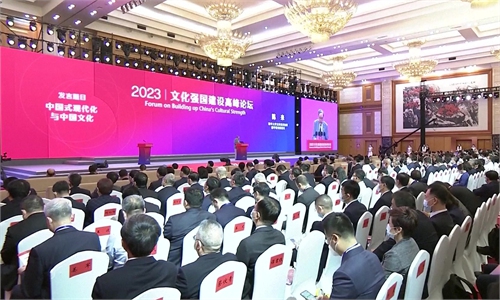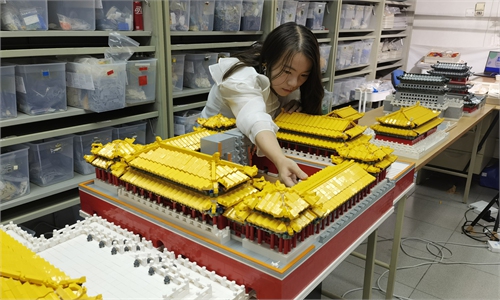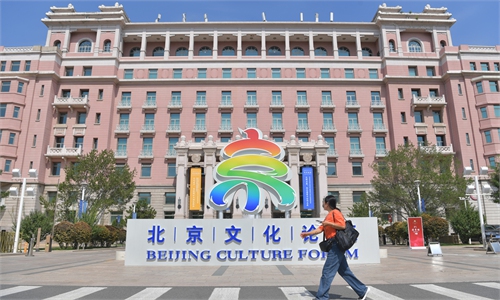ARTS / CULTURE & LEISURE
Enhancing cultural strength through innovation
Soul of nation
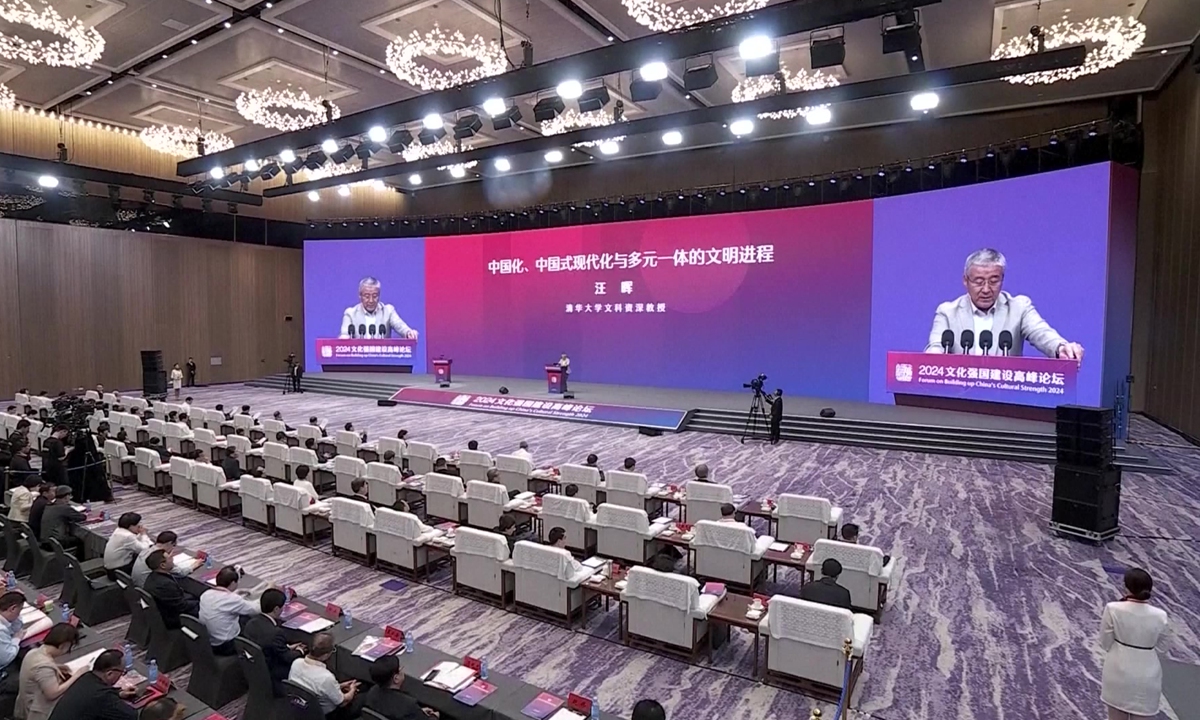
An expert gives a speech at the Forum on Building up China's Cultural Strength 2024 in Shenzhen, Guangdong Province, on May 23, 2024. Photo: VCG
Government officials and experts convened at the Forum on Building up China's Cultural Strength 2024 in Shenzhen, South China's Guangdong Province on Thursday and Friday to exchange views on promoting the development of cultural inheritance and building cultural confidence.In a keynote speech, Li Shulei, a member of the Political Bureau of the Communist Party of China (CPC) Central Committee and head of the Publicity Department of the CPC Central Committee, urged players in the cultural sector to improve their sense of responsibility, shoulder the new cultural mission, and push forward the building of the cultural sector in the new era and open up new horizons.
Huang Kunming, a member of the Political Bureau of the CPC Central Committee and secretary of the CPC Guangdong Provincial Committee, also addressed the forum.
Participants at the forum have concluded that enhancing cultural confidence is necessary to make greater strides in building China's cultural strength. To beef up China's cultural strength, experts find it necessary to enhance cultural confidence and establish cultural aspirations.
They proposed to develop and strengthen mainstream values, public opinion, and culture.
More work needs to be done to launch cultural content that connects ancient Chinese civilization with modern development, and integrate the Chinese and Western cultures for the sake of posterity.
Great mission
Leading players in the cultural sector also shared their ideas in promoting cultural innovation and prosperity, strengthening the protection and inheritance of cultural heritage, and accelerating digital empowerment in the industry.
Culture is a country and a nation's soul. Regarding high-quality content, Wang Huimin, president and editor in chief of Guangming Daily, said that it is important to focus on the demands of the people to help shape their favorite cultural products.
On the other hand, Wang said that artworks need to be embedded with values of positivity and beauty, and serve the people with food for thought.
"The best cultural products can be successful in both ideology and art, and gain popularity in the market," he noted.
Zheng Qingdong, president and editor-in-chief of Economic Daily talked about the problem from the perspectives of culture and economy.
As the two aspects of progress of human society, there has always been interplay between culture and economy - economic development provides a material foundation for cultural development, while culture endows economic development with profound humanistic value, said Zheng.
Cai Huaijun, deputy head of Hunan Radio and Television Group, echoed this idea, saying that the group has been working on meeting the needs of the country and the demands of the people.
"We have always been considering the mission of new media as a mainstream player. From this mindset, we keep breaking through our limits," stated Cai.
Embracing AI
Through embracing new technology such as artificial intelligence (AI), 5G, and cloud computing, fostering new-quality productive forces has become a key factor in the cultural sector. The organic convergence of culture and technology will drive development in the future, according to the forum.
In a round-table dialogue, Fu Ruoqing, chairman of the China Film Group Corp, introduced how AI was applied in film making.
"To approach the global market in a better way, in the production of The Wandering Earth 2, we utilized AI to integrate the language library with [actor] Wu Jing's own voice pool to match each other, finally achieving the effect of the starring actor speaking Swahili and Spanish," said Fu.
With the AI research center established under the China Film Group, Fu expected that the organization could better leverage new technology to create more popular programs for audiences, he added.
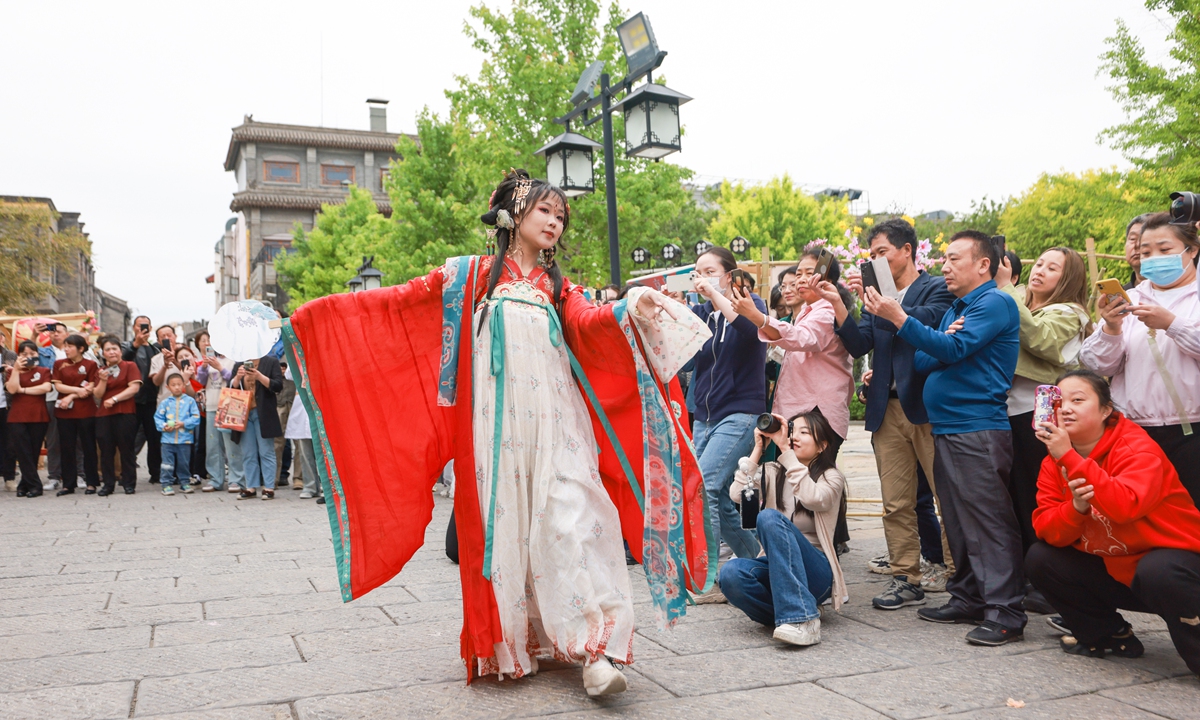
A young woman in hanfu, the traditional clothing of the Han ethnic group, poses for photos in Beijing. Photo: VCG
Business modelsAt the Sub-Forum on Innovative Development of the Cultural Industry, one of the eight breakout sessions, delegates had in-depth discussions about new technological activities, new business models in the cultural industry, and the linkage between the new business models and blockbusters.
With digital technology empowering the cultural sector, a wave of new business models is emerging, enriching people's spiritual lives while promoting the transformation and upgrading and high-quality development of the cultural sector.
Wang Xiaohui, chief content officer of video streaming service iQIYI, said that it is important to unleash the long-term value of IPs. To achieve this goal, the company has been collaborating with the local authorities of Xinjiang Uygur Autonomous Region and a publishing house to roll out the new business model of culture and tourism under the brand of the novel My Altay written by Li Juan, recently featured in a popular TV series. The deep collaboration has empowered both the TV drama and the local tourism industry, he said.
Analyzing domestic blockbuster movies, popular creative cultural products, and the amazing hanfu (the traditional clothing of the Han ethnic group) that surprised the world, experts found it important to focus on the details of Chinese culture.
Professor Yang Yu of the School of Humanities of Central South University proposed that ancient Chinese literature is a library of stories, which should serve as a bridge between the Chinese culture and those of other countries. "The beauty of traditional Chinese culture contained in classical poetry provides us with a soul and a gene that enable us to achieve interdisciplinary innovation and cross-cultural communication," she said in terms of telling China's stories in a better way to the world.
